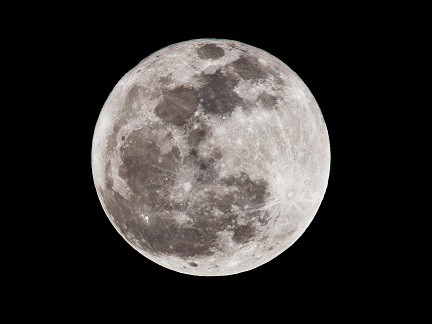Does a full moon affect your child’s sleep? Science weighs in

 It’s a question posed since the first exhausted parents tried to deal with their Energizer bunny of a child, still up and still rambunctious at one o’clock in the morning on the night of a full moon- is my kid a werewolf?
It’s a question posed since the first exhausted parents tried to deal with their Energizer bunny of a child, still up and still rambunctious at one o’clock in the morning on the night of a full moon- is my kid a werewolf?
Now with a recent study on how the lunar cycle might be affecting children’s behaviour we can finally announce the more or less definite results: not likely. The comprehensive study tracked the waking and sleeping habits of 7372 children aged nine to 11 from 12 countries around the world to see if their behaviour was affected by the full moon. Using accelerators strapped to the children’s waists to monitor movement, researchers were able to collect data on sleep duration, light-intensity activity, moderately vigorous activity and total sedentary time over a seven day period. Once the results were calculated and coordinated with the various phases of the moon, it was found that only sleep duration was affected by the lunar cycle -on average, children slept five minutes less when the moon is full, representing a one per cent reduction in sleep time.
“In humans, the empirical evidence that the moon exerts an influence on behaviors is weak,” say the study’s authors, led by Jean-Philippe Chaput of the Children’s Hospital of Eastern Ontario Research Institute in Ottawa, Ontario. “The present study was the first to examine the associations between moon phases and sleep and activity behaviors in children across five major geographic regions of the world.”
Previous research on the topic included a 2013 Swiss study that saw sleep duration in 33 adults reduced by 20 minutes due to the full moon and a 2014 study from Sweden that reported a 25 minute reduction in sleep for 47 adults.
But not much research has been conducted on children’s behaviour vis a vis the lunar cycle, although one recent study of 795 Danish children did conclude that they actually slept more not less (on average three minutes more) during a full moon. But with ten times that number of participants and by drawing them from a substantially wider range around the world (from developed countries like Canada and Finland to developing ones like Kenya) the present study’s conclusions should carry a lot more weight, thus potentially ending the debate about your child’s possible predilections towards werewolfishness.
“Collectively, the current study provides solid evidence to the effect that the associations between moon phases and children’s sleep duration/activity behaviors are not meaningful from a public health standpoint,” say the study’s authors.
Public healthfully meaningful, maybe not, but real nonetheless -five minutes is still five minutes. Which leads one to ask, why does this happen? One suggestion is that the brightness of the full moon might be playing (minor) havoc with ours and our children’s ability to get a good night’s sleep. At full moon, for instance, the night sky is 25 times brighter than at half moon and 250 times brighter than on a moonless night.
But apart from being humdrum boring, such an explanation seems unlikely in today’s world of street lights and thick curtains. Instead, we would rather take what’s behind door number two: researchers have found that some animal behaviour is in fact strongly regulated by the lunar cycle. Take the Palolo worm of the Samoan islands, for example. They only reproduce by swarming during the last quarter of the moon’s cycle. Thus on that note, “It is also plausible that an as yet unidentified circalunar clock exists in humans,” say the study’s authors.
And so, like the lowly Palolo worm, let us embrace our potential-but-let’s-say-totally-real connection to the moon, our lunar romance, if you will. Just watch out for those howling kids next full moon.
The study was published in the journal Frontiers in Pediatrics under the auspices of the International Study of Childhood Obesity, Lifestyle and the Environment (ISCOLE).

